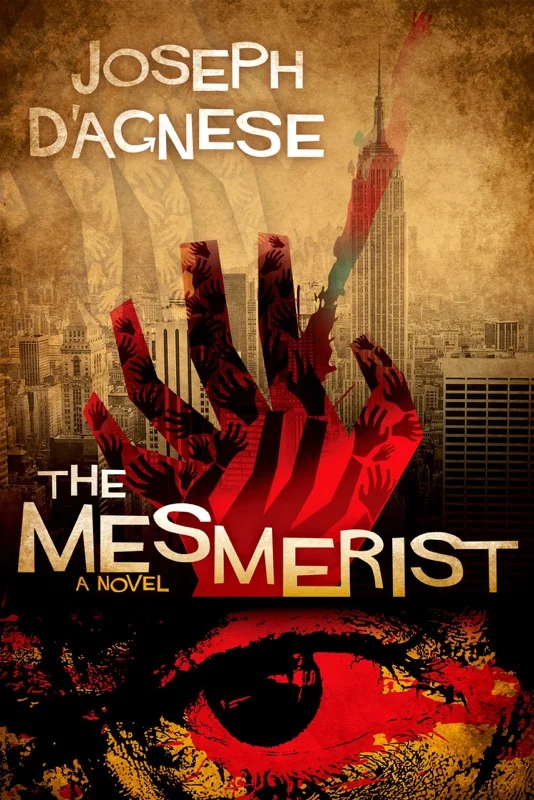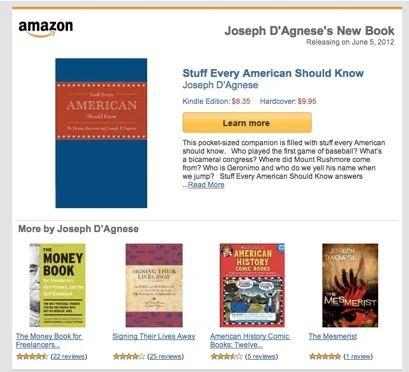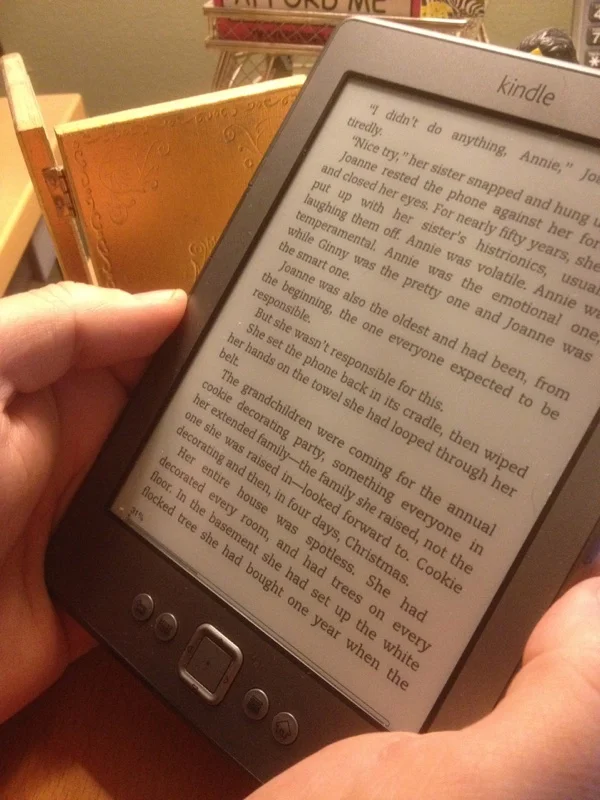Several years ago I heard that the University of Chicago was reprinting some of Donald Westlake’s old Richard Stark novels, both in print and as ebooks. I snapped up one of the ebooks during a heavily promoted “event” where they were offering one of the titles at the low, low price of free.
I’ve been trying to read more ebooks to reduce the amount of clutter in my home. I also like that when I’m on vacation or on the road, I can carry hundreds of books with me on one device. I was looking forward to enjoying the Stark novel. That series, featuring master thief Parker, is known as the quintessential heist series in the crime fiction world.
But I was shocked by the number of typos I found in that Kindle edition. This happens whenever a publisher scans an old book that has never been digitized, and then uses OCR (optical character recognition) software to convert that image into text. You really have to proofread the resulting text very carefully because even good software will read the original text incorrectly. I went through this on a minor level when I recently scanned one of my old manuscripts—a pre-MS Word manuscript—and found that every instance of the letters “rn” as in “horn” was converted to the single letter “m.” If you squint real hard at the letters “rn,” you can kinda, sorta see how that might happen.
Anyway, the problems I spotted in the Stark novel were so bad and pervasive that I was actually moved to write the hallowed University of Chicago Press. To my surprise, they wrote me back. Here is our exchange. I’ve redacted the contact’s name and email.
From: Joe
Sent: Monday, October 31, 2011 7:40 AM
To: [Publicity, U of Chicago Press]
Subject: Richard Stark novels (problems)
Hi:
I have never written a letter like this.
I recently downloaded a Kindle edition of one of your Richard Stark novels, and was amazed by the number of typos I found in the text. Westlake was a fine writer, and I'm delighted that U. of Chicago Press is reprinting these old books. But someone has to proof them before they go out the door. I’m an author/editor myself, so I am especially aware of these sorts of problems. But still: they were unavoidable and frequent.
Some of these problems looked like scanning errors. The word “I’ll” showed up several times as “111,” as if the text of an original paperback was scanned improperly into your system but not caught by a live editor. Other times, I’d find words such as “we’ll” written as “well,” and often the first word of sentences was uncapitalized.
This pretty basic stuff, but I don't feel comfortable buying more of the books until I know for sure that this problem has been corrected across the board. I’m told that a lot of Westlake’s older paperback originals had typos but that isn't an excuse. I can’t imagine that U. of Chicago Press is trying to reproduce the texts of these books exactly as they once appeared. That’s ludicrous. It seems more likely that someone was rushing to meet a deadline and didn't proof the Kindle editions. I notice a few other comments on Amazon’s websites that lead me to believe that this is pervasive throughout the series. I wouldn’t consider buying the print versions either, for the same reason.
Can you let me know when/if the problem is fixed? I plan to buy them all. Just not yet.
— Joe
On Oct 31, 2011, at 11:09 AM, they wrote back:
Dear Joe,
Thank you for emailing to bring this issue to our attention. We do very much care about the quality of our print and e-books and I appreciate that you have made us aware of the problems you found. The older titles are more difficult to convert than the newer titles for which we have live files and editors freshly familiar with the text, so it does not surprise me that the conversion process caused errors, but it does concern me that they were not caught.
I agree with you that the kinds of errors you are describing seem to be the sort that come from the conversion process. I’d like to look into this issue further. Could you tell me the title of the book that you purchased so I can have it reviewed? Once we have looked at the book you emailed about, we will check some of the others to which may have similar errors that were missed.
Sincerely,
[redacted]
So I wrote back:
The one I downloaded was “The Score.”
But by poking around online, I found some other references to typos in at least two other titles. There’s this link, where someone writes:
“After reading another post like this, I reported 7 or 8 typos in “Butcher’s Moon” by Richard Stark. I also mentioned I would not be averse to a store credit for my efforts.”
I found this comment at this link:
Letting Amazon know about typos/errors in Kindle books works. I pointed out 26 typos in a book and Amazon removed it indefinitely until the publisher fixes it. And they gave me 5$. : kindle
And then, on Amazon, I found this review of the Stark book entitled “The Seventh”:
4.0 out of 5 stars Who edited the Kindle edition?! September 10, 2011
Amazon Verified Purchase
This review is from: The Seventh (Parker Novels) (Kindle Edition)
So many typos. I feel like I’m reading German “die” for “the” and often “w” for “v”. Great novel, but—if we are going to pay $10 for an electronic copy—please take the time to make it readable.
Again, I’m really sorry to contact you about this. I hope you will get this sorted out. I know this is a big effort, re-releasing these old books. I know a lot of fans are watching them closely.
All best, Joe
That was was all from my end. My last note from the publisher was this:
Dear Joe,
Thanks so much—especially for sending the other comments as well!
As a warning, it may be a couple months before this is sorted out since we have to work around the schedule of our new books. And, once again, thank you for taking the time to let us know about these.
Best wishes,
[redacted]
There you have it. I should note that I’m a terrible copy editor and proofreader of my own work. (Go ahead and look. I’m sure there are typos in this very post.) And I have been as long as I’ve been working in publishing, which is knocking on three decades at this point. That’s why I hire editors to review my books before I self-pub them. But here’s something people don’t like to admit: Even my traditionally published books have typos.
I once visited the offices of a friend who happened to be a literary agent. He was aggravated that week by a disaster that had happened with one of the books he repped and sold to a Big Five publisher. It was a nonfiction book about rock music. He flipped to a page and held up the volume. Near the bottom of the page, where there was supposed to be a photo and caption, there was nothing but a caption and a thin border where the photo was supposed to be.
“How did that happen?” I said.
He shook his head. “But they’re pubbing thousands of books a year and they apparently can’t bother to give a sh*t.”
Humans miss stuff all the time, even the experts. When people point out those typos to me, I try to have them fixed. It’s easier in the case of my self-pubbed books, trickier in the case of books pubbed by major publishers.
But here’s a highly touted line of books put out by the people who invented the freaking Chicago Manual of Style that appears not to have been proofread very well across the board. If there are shocking errors in three Kindle editions, as suggested by the notes above, they’re probably pervasive throughout the series.
In the long-running and by now uninteresting debate of traditional pub vs. self-pub, indie authors have been urged to be as professional as possible. Have someone edit your work, they’re told. Get a professional cover done. Have the book professionally formatted. And so on. Some of them do, some of them don’t.
I gotta say: I continue to be impressed by the work of authors whose books I’m proud to recommend to friends and even buy for family members.
Based on the Stark incident and a few others I’ve encountered in traditional publishing, I’m now convinced that a conscientious indie author can produce a better product than publishing professionals, who are routinely “swamped” and not personally invested in the final product.
It’s been seven years. I wonder if they’ve gotten the typos sorted out by now. I’ve been meaning to circle back and read those, but there’s always other books to read.
What do you think?















